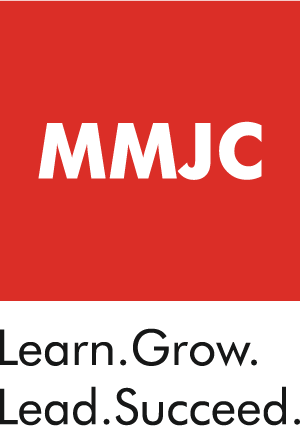

Education is the most powerful weapon which you can use to change — Nelson Mandela
Introduction:
In an era brimming with possibilities, education stands as a beacon of hope and transformation. It transcends mere knowledge acquisition; it is the catalyst for empowering individuals with the tools and resilience needed to navigate life’s myriad challenges. John Dewey’s timeless wisdom echoes through time, reminding us that “Education is not training for existence; education is life itself.” Embracing this philosophy, corporates today emerge as architects of change, reshaping education beyond traditional boundaries.
The dawn of the New Education Policy 2020 in India heralds a new era of holistic learning. It beckons us to envision education not as a linear journey confined to textbooks but as a vibrant ecosystem teeming with life skills, practical wisdom, and critical thinking. This paradigm shift invites corporates to step into the forefront of this transformative journey, seamlessly integrating their corporate social responsibility (CSR) commitments with the noble cause of holistic education.
Here is a compelling narrative of how corporates can synergize their resources, innovation, and passion to foster a generation equipped for the complexities and opportunities of tomorrow.
Holistic Education: Beyond Classrooms:
Education is evolving into a dynamic ecosystem where formal education intertwines with essential survival skills. Corporates can collaborate with educational institutions to integrate life skills, practical knowledge, and experiential learning into the curriculum. This includes fostering values like empathy, resilience, teamwork, and adaptability through activities such as sports, arts, leadership programs, and community engagement projects.
Creating a Dynamic Education Ecosystem: The Corporate-Education Nexus:
Education today is not a static process confined to classrooms; it is a dynamic ecosystem where formal education intersects with essential survival skills. Corporates play a pivotal role in shaping this dynamic landscape by collaborating with educational institutions to enrich the curriculum and imbue it with real-world relevance.
Integrating Life Skills and Practical Knowledge:
Corporates bring a wealth of practical experience and expertise to the table, making them invaluable partners in integrating life skills and practical knowledge into the educational fabric. This includes imparting skills such as financial literacy, digital proficiency, communication skills, problem-solving abilities, and time management techniques. By weaving these skills seamlessly into the curriculum, students are equipped not only with academic prowess but also with the tools needed to thrive in diverse personal and professional settings.
Fostering Values and Soft Skills:
Beyond technical competencies, corporates emphasize the cultivation of values and soft skills essential for holistic development. Activities like sports, arts, leadership programs, and community engagement projects serve as fertile grounds for nurturing values like empathy, resilience, teamwork, adaptability, and ethical decision-making. These experiential learning opportunities not only enhance character development but also instill a sense of social responsibility and global citizenship among students.
Empowering Through Experiential Learning:
Experiential learning lies at the heart of this collaborative endeavour, offering students hands-on exposure to real-world challenges and opportunities. Internships, apprenticeships, industry-academic partnerships, and innovation labs bridge the gap between theory and practice, fostering creativity, critical thinking, and entrepreneurial spirit. Students emerge not only with academic qualifications but also with a deep-seated confidence in their abilities to navigate complexities and contribute meaningfully to society.
Embracing Diversity and Inclusion:
Corporates also champion diversity, inclusion, and equity within educational settings, ensuring that learning experiences are accessible and enriching for all. By celebrating diverse perspectives, cultures, and talents, corporates and educational institutions create inclusive environments that nurture creativity, collaboration, and mutual respect among students and educators alike.
New Education Policy 2020: Catalyst for Change:
The New Education Policy 2020 advocates for a learner-centric, multidisciplinary, and flexible approach to education. It emphasizes the importance of foundational literacy and numeracy, critical thinking, creativity, digital literacy, vocational skills, and experiential learning. Corporates can align their CSR initiatives with the policy’s objectives by supporting initiatives that promote these competencies among students, educators, and communities.
CSR in Education: Creating Impactful Change:
Corporates can leverage CSR as a powerful tool to contribute meaningfully to education and societal development. Here are some ideas on how they can make a lasting impact:
- Empowering Through Strategic Partnerships: Skill Development Programs – Collaborative efforts between corporates and educational institutions are instrumental in bridging the gap between formal education and industry demands. By partnering effectively, they can design and implement skill development programs that equip students with the competencies needed to thrive in the modern workforce.
- Digital Literacy Initiatives: In today’s digital age, digital literacy is a fundamental skill. Corporates can collaborate with educational institutions to develop comprehensive digital literacy programs that encompass not only basic computer skills but also advanced digital tools, data analytics, cybersecurity awareness, and digital marketing strategies. This equips students with the technological prowess essential for success in diverse professional domains.
- Vocational Training and Industry Alignment: Vocational training programs tailored to industry requirements are essential for preparing students for specific career paths. Corporates can lend their expertise in designing curricula, providing hands-on training, and offering industry certifications that validate skills and competencies. This ensures that students graduate with practical knowledge, job-ready skills, and a clear understanding of industry standards and practices.
- Entrepreneurship Incubation and Support: Fostering an entrepreneurial mindset among students is crucial for driving innovation and economic growth. Collaborative initiatives can include entrepreneurship incubation centres, startup accelerators, mentorship programs, and funding opportunities for student-led ventures. By nurturing entrepreneurial spirit and providing the necessary resources and guidance, corporates empower aspiring entrepreneurs to turn their ideas into thriving businesses.
- Soft Skills Development and Professional Etiquette: Soft skills such as communication, teamwork, leadership, problem-solving, and emotional intelligence are indispensable in today’s professional landscape. Joint efforts can focus on workshops, seminars, and experiential learning activities that enhance these soft skills, along with professional etiquette, workplace ethics, and cultural sensitivity. This holistic approach ensures that students are not only technically proficient but also possess the interpersonal skills and professional demeanor required for career success.
- Sports and Wellness Initiatives:
- Corporates can play a pivotal role in promoting sports and other facilities through CSR initiatives that encompass a range of activities. This includes investing in the development and upkeep of sports infrastructure such as playgrounds, sports complexes, and community sports centers, ensuring accessibility and quality for all. Additionally, corporates can sponsor a diverse array of sports programs, leagues, tournaments, and coaching clinics, covering expenses like equipment, accessories, and professional training. Moreover, promoting health and wellness initiatives for community at large, including physical activity campaigns, nutrition education, mental health awareness workshops, and stress management programs, can significantly impact overall well-being.
- Supporting sports education in schools and colleges involves providing scholarships, grants, and resources for sports curriculum development, coach training, and skill enhancement programs, fostering talent and sportsmanship from an early age. Organizing corporate sports events, inter-departmental tournaments, and wellness challenges not only promotes teamwork, camaraderie, and employee engagement but also boosts morale and productivity.
- Collaborating with sports-focused NGOs allows corporates to extend their reach and impact, supporting initiatives like sports for development, inclusive sports programs for marginalized communities, and sports-based life skills training. Advocating for sports policies and initiatives at local, regional, and national levels can influence positive changes in the sports ecosystem, encouraging participation, infrastructure development, and funding opportunities.
- Overall, these comprehensive CSR efforts contribute to creating a culture of sports, fitness, and wellness, fostering inclusivity, healthy lifestyles, and community engagement.
Conclusion
The synergy between corporates and educational institutions transforms education into a vibrant tapestry of knowledge, skills, values, and experiences. It prepares students not just for academic success but for lifelong learning, personal fulfilment, and meaningful contributions to a rapidly evolving world.
By embracing a holistic approach to education and aligning CSR initiatives with societal needs and policy frameworks like the New Education Policy 2020, corporates can contribute significantly to nurturing a generation of empowered individuals equipped with the knowledge, skills, values, and mindset to thrive in a rapidly changing world. Education, when approached as a journey of lifelong learning and empowerment, becomes not just a means of survival but a pathway to meaningful and sustainable progress for individuals and society as a whole.
The article is published in Taxmann and the same can be accessed at the following link:

